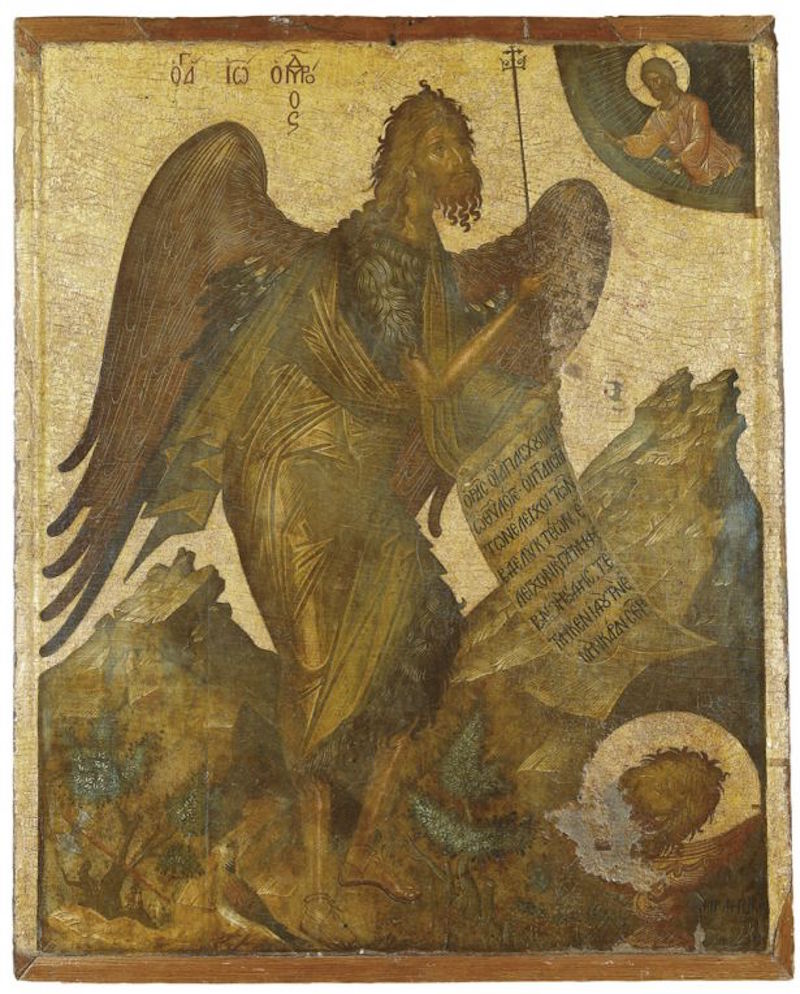The Supreme Moment
Jean Hoefling
Whatever you want to be, you’ll be in the end. – The Moody Blues
Subdued and faded to sepia tones, this 15th century Byzantine-style icon of John the Baptist portrays the Forerunner beseeching Christ in heaven while his own severed head lies haloed at his feet—a grim reminder of the cost of commitment to a person’s deepest convictions. At face value, this scene is out of chronology, since Christ wasn’t in heaven at the time John was beheaded, and we’re not sure where in the story the man is here. But of course the meaning is layered, certain elements symbolic of something more enduring. So though the icon portrays the essence of the most defining event of the Baptist’s life, the overarching message is about the “supreme moment” of kairos at work in John’s life. It’s about who he became in the eternal realm, not the chronos, the chronology, of his beheading. And the icon is about each of us in that moment when all is said and done and we’ve become whatever we are in the end.
We need whole paragraphs in English to adequately explain what kairos does in one brilliant, ancient Greek word. When Greeks used kairos, what came to mind was something elastic, qualitative, an undetermined measure of an unseen substance that intersects with the present, chronological moment in some cosmic way that makes a difference. It referred to that exact moment an archer must release the arrow from his bow if it is to accurately pierce the moving target in his aim. The ancient god the Greeks named Kairos was said to be “ever running.” Like the old god, kairos is that magic that races through our moments as opportunities worth seizing, noble choices worth making. Kairos is about bringing a new creation out of rubble, something that endures out of the rough material of crisis each of us faces continually living in a fallen system.
We’re no different than John the Baptist, who lost his head to principle. Each of us will eventually lose ours to something, too. The Greeks had it right all those centuries ago, inspiring the ancient world to consider what looks a lot like the dynamic of human free will intersecting with the grace of Providence. Whatever we choose to call it, the beauty of kairos will be around long after every postmodern notion of nihilism is in its grave.
